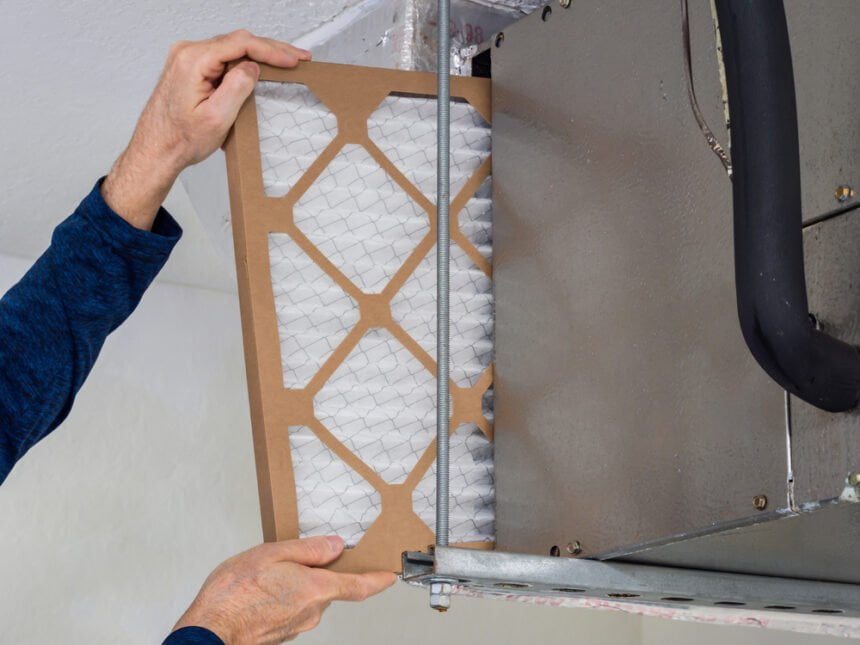The Asthma and Allergy Foundation of America reports that around 19.2 million people suffer from allergies. Unfortunately, these problems can actually be worse in the winter when we spend a lot of time indoors.
- 1. Regularly replacing air filters helps reduce air pollutants
- 2. Air filters can capture particles that can trigger allergy symptoms
- 3. High-efficiency air filters can filter particles up to 0.3 microns in size
- 4. Regularly checking and replacing air filters can reduce energy costs
- 5. Investing in the highest quality air filters can improve air quality and reduce allergy symptoms
When the temperatures begin to rise, the last thing on our minds is the air quality indoors. However, it is essential to consider the air quality in the home when dealing with allergies. There are a lot of steps that people with severe allergies need to take to be comfortable. HVAC air filters are a crucial factor in reducing allergy symptoms due to the fact that they help to filter out allergens that are airborne.
So, let us discuss why it is important to change your HVAC air filter regularly and how it can help reduce allergy symptoms. We will also touch on the different types of air filters available for use in an HVAC system. These will give you a better understanding of how the best air filter for hvac can improve indoor air quality and reduce allergy symptoms.
1. Regularly replacing air filters helps reduce air pollutants
Regularly replacing the air filters in an HVAC system is an essential step for reducing air pollutants in a home. This is especially important for those who suffer from allergies and asthma, as air pollutants can exacerbate symptoms. By replacing the air filters regularly, homeowners can ensure that the air in their homes is clean, thus minimizing the risk of having their allergy symptoms triggered.
2. Air filters can capture particles that can trigger allergy symptoms
HVAC air filters are an important tool in reducing allergy symptoms. They help to capture and remove airborne particles that may trigger allergic reactions. A high-efficiency air filter can remove up to 99% of airborne particles, such as dust, pollen, and pet dander, from the air that you breathe in your home. The filter works by trapping these particles and preventing them from circulating throughout your home. You can learn more about HEPA filters on the EPA website.
3. High-efficiency air filters can filter particles up to 0.3 microns in size
High-efficiency air filters are a crucial component of any HVAC system, especially for those with allergies or asthma. These air filters can filter particles up to 0.3 microns in size, including dust, pollen, dander, and other allergens. By using these types of air filters, homeowners can reduce allergens in their homes and improve air quality.
4. Regularly checking and replacing air filters can reduce energy costs
While regularly checking and replacing air filters can help reduce energy costs, it is also an essential step in keeping your air quality high. Allergens like dust, pollen, and pet dander can easily accumulate in air filters, causing them to become clogged and decrease the efficiency of your HVAC system. This means that not only are you paying more for energy, but you are also circulating dirty air throughout your home.
5. Investing in the highest quality air filters can improve air quality and reduce allergy symptoms
HVAC air filters are essential for reducing allergy symptoms and improving air quality in your home. Investing in the highest quality air filters is an important part of safeguarding your family’s health. Air filters trap airborne allergens like dust and pollen as they move through your home’s HVAC system, helping to reduce symptoms and improve air quality. Replacing air filters regularly can help maintain airflow and reduce energy costs in the long run.
In conclusion, HVAC air filters play an important role in reducing the symptoms of allergies and asthma. Changing the filter regularly can help remove any harmful dust, pollen, pet dander, and other particles from the air, providing relief for those with allergies and asthma. Additionally, the right type of filter can help improve indoor air quality, making it healthier for everyone in the home. Taking the time to choose the correct filter for your HVAC system is a small but significant step towards better air quality and a healthier home.

